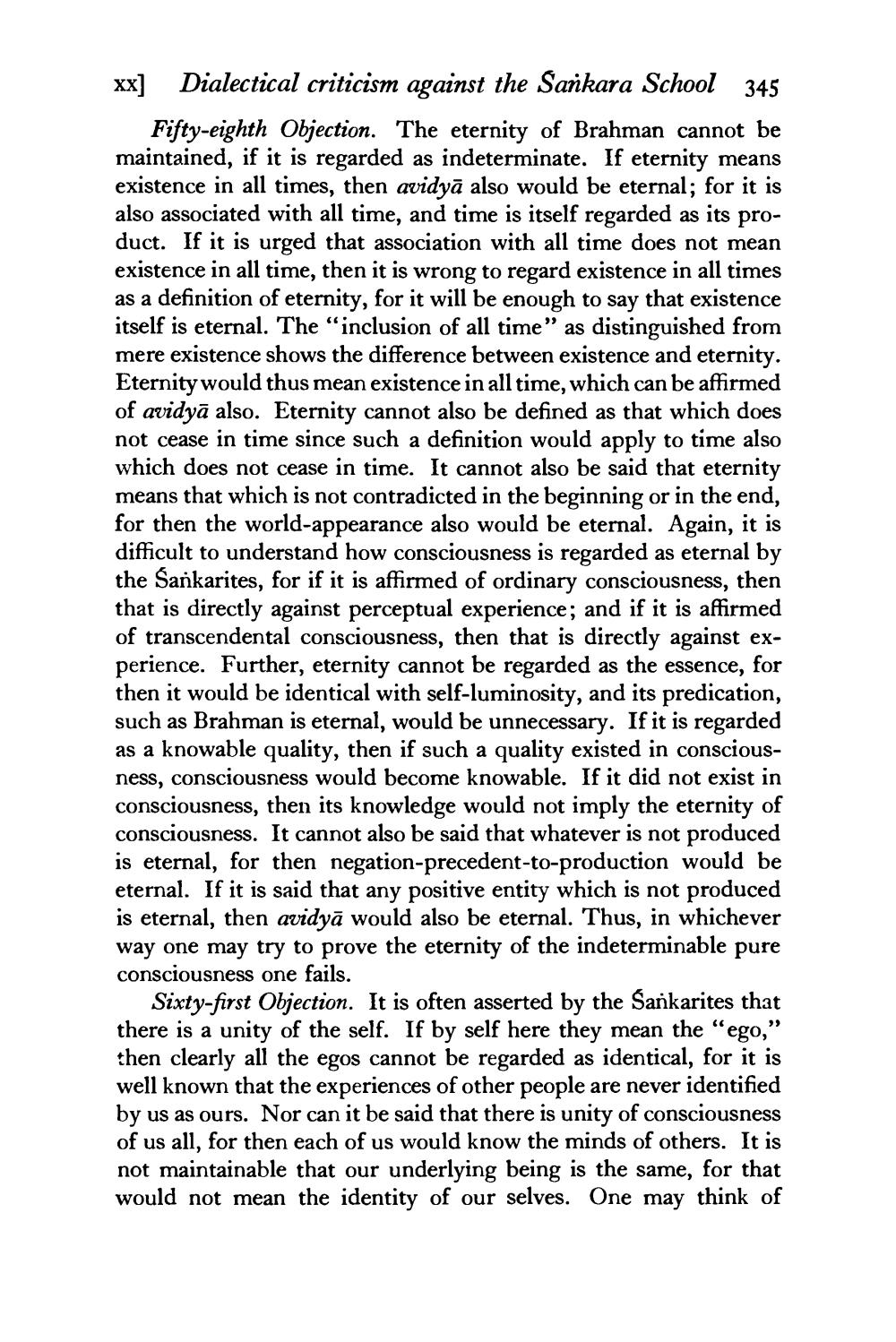________________
xx] Dialectical criticism against the Sankara School 345
Fifty-eighth Objection. The eternity of Brahman cannot be maintained, if it is regarded as indeterminate. If eternity means existence in all times, then avidyā also would be eternal; for it is also associated with all time, and time is itself regarded as its product. If it is urged that association with all time does not mean existence in all time, then it is wrong to regard existence in all times as a definition of eternity, for it will be enough to say that existence itself is eternal. The "inclusion of all time" as distinguished from mere existence shows the difference between existence and eternity. Eternity would thus mean existence in all time, which can be affirmed of avidyā also. Eternity cannot also be defined as that which does not cease in time since such a definition would apply to time also which does not cease in time. It cannot also be said that eternity means that which is not contradicted in the beginning or in the end, for then the world-appearance also would be eternal. Again, it is difficult to understand how consciousness is regarded as eternal by the Sankarites, for if it is affirmed of ordinary consciousness, then that is directly against perceptual experience; and if it is affirmed of transcendental consciousness, then that is directly against experience. Further, eternity cannot be regarded as the essence, for then it would be identical with self-luminosity, and its predication, such as Brahman is eternal, would be unnecessary. If it is regarded as a knowable quality, then if such a quality existed in consciousness, consciousness would become knowable. If it did not exist in consciousness, then its knowledge would not imply the eternity of consciousness. It cannot also be said that whatever is not produced is eternal, for then negation-precedent-to-production would be eternal. If it is said that any positive entity which is not produced is eternal, then avidyā would also be eternal. Thus, in whichever way one may try to prove the eternity of the indeterminable pure consciousness one fails.
Sixty-first Objection. It is often asserted by the Sankarites that there is a unity of the self. If by self here they mean the "ego," then clearly all the egos cannot be regarded as identical, for it is well known that the experiences of other people are never identified by us as ours. Nor can it be said that there is unity of consciousness of us all, for then each of us would know the minds of others. It is not maintainable that our underlying being is the same, for that would not mean the identity of our selves. One may think of




